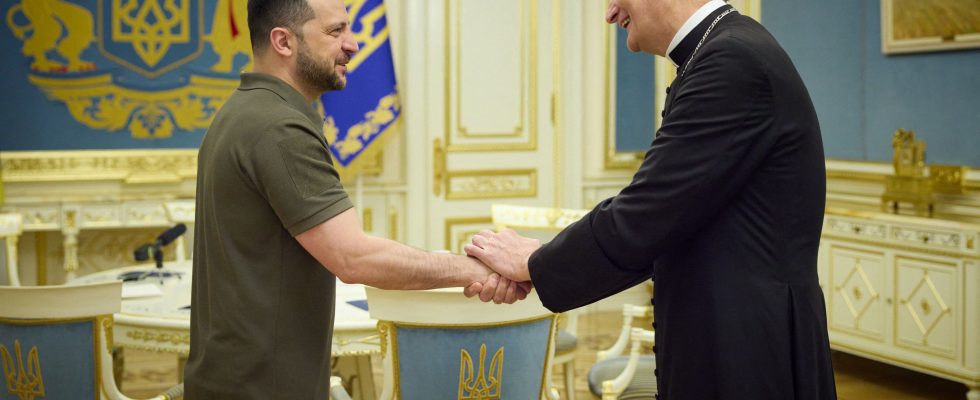He became the Vatican’s envoy for peace. Italian Cardinal Matteo Zuppi, 67, is expected in Russia this Wednesday, June 28. He will stay there until Thursday to try to initiate a mediation between kyiv and the Kremlin, as an emissary of Pope Francis. This visit to Moscow – the first by a senior official of the Holy See since the start of the war in February 2022 – comes three weeks after the cardinal was received in Ukraine.
“The main objective of the initiative is to encourage gestures of humanity that can help promote a solution to the current tragic situation and find ways to achieve a just peace,” the Holy See said in a statement. And to satisfy these ambitions, he placed his trust in Matteo Zuppi, Archbishop of Bologna and President of the Italian Episcopal Conference.
Specialist in diplomacy and peace efforts
“Matteo Zuppi was chosen because he belongs to the Sant’Egidio community”, reminds L’Express François Mabille, professor of political science and specialist in religious actors in international relations. This community of lay Catholics, established in 1968, specializes in diplomacy and peace efforts. She became known during the signing in 1992 of a peace agreement in Mozambique, then torn by civil war. Sant’Egidio and Matteo Zuppi played a leading role in ending the conflict.
“Choosing Cardinal Zuppi also allows the Vatican to be present in the diplomacy between Ukraine and Russia without engaging in it directly”, adds François Mabille. “Cardinal Zuppi’s visit is less important than if we sent number 2 or number 3 of the Holy See.” Enough to allow the Vatican to keep a certain reserve, while Pope Francis is criticized for his position in the conflict. Until April 2022, he did not name the aggressor from Ukraine, drawing the wrath of kyiv. He then criticized the attitude of Vladimir Putin and that of Patriarch Kirill, head of the Russian Orthodox Church. The latter, unlike the Holy See, supports the actions of the Kremlin. Their relations have therefore become considerably strained since the pope’s declarations.
Restoring contact with the Russian Orthodox Church
Matteo Zuppi’s visit aims to correct the situation. If the cardinal’s schedule is kept secret for the moment, he could meet Patriarch Kirill in Moscow, or “at least a person in charge of the department of international relations of the Russian Orthodox Church”, supposes François Mabille. “It is less a dialogue mission between two countries than a first step to re-establish contact with the Russian patriarchy.”
This objective is crucial at a time when the Holy See is trying to maintain its relations with other religious representatives. The pontificate had already made many efforts to establish a dialogue with the Russian Orthodox Church, via several official meetings between 2016 and 2022. “The war in Ukraine stopped this process”, notes François Mabille. However, “the initial idea of Pope Francis was to form a common religious front against this conflict”, he adds. “He hoped that the Ukrainian Orthodox Church could exert pressure on President Zelensky, and that Patriarch Kirill could act in the same way on Vladimir Putin.”
Unfortunately, neither the religious representatives of kyiv, nor those of Moscow acceded to this request. Matteo Zuppi’s visit to kyiv on June 5 and 6 was deemed “brief but intense” by the person concerned. Volodymyr Zelensky assured him that a ceasefire “would not lead to peace”. He did, however, discuss humanitarian action on the part of the Holy See.
